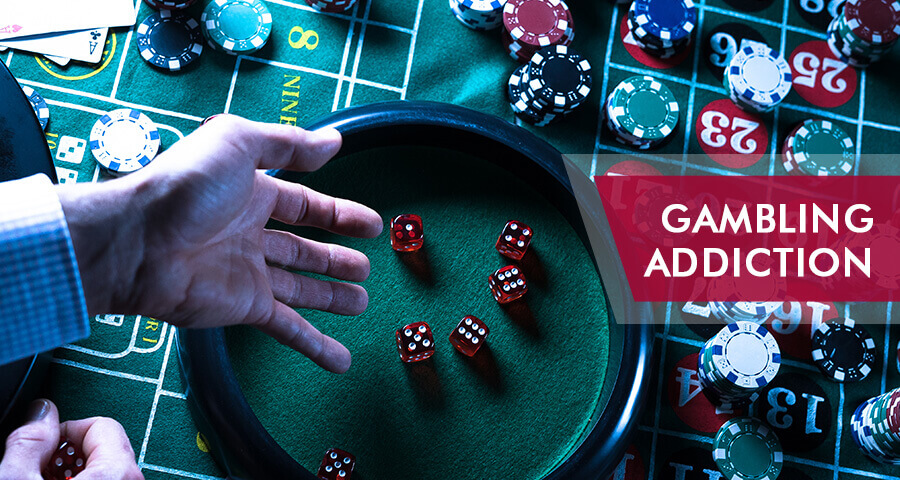Kasino telah ada sejak lama, memberikan jutaan pengalaman bermain game yang lancar secara global. Kasino fisik tersedia di hampir semua kota maju, namun perkembangan teknologi terkini telah menyebabkan diperkenalkannya kasino online. Kasino online seperti fun88 memiliki banyak manfaat dan menjadi pilihan bagi banyak penjudi. Game-game ini mudah diakses, asalkan Anda memiliki internet cepat dan perangkat pintar. Kasino online juga memiliki promosi dan bonus tinggi yang menarik para penjudi dari berbagai belahan dunia. Artikel ini membahas manfaat utama kasino online.
Tentukan Tujuan Anda
Langkah pertama sebelum memilih kasino online adalah memutuskan tujuan Anda. Dengan kata lain, penjudi harus mengetahui apa yang diharapkan sepanjang pengalaman kasino mereka untuk meningkatkan peluang kemenangan mereka. Mengetahui tujuan Anda akan membantu Anda memilih penyedia layanan terbaik. slot gacor hari ini
Ingat, sebagian besar kasino online memiliki persyaratan taruhan yang rumit, artinya pemain tidak dapat memanfaatkan bonus pendaftaran.
Bacalah Panduan Perjudian Online
Platform perjudian online dibuat secara berbeda, yang menjelaskan mengapa Anda harus membaca panduan perjudian yang berbeda. Memeriksa panduan ini sangatlah penting, karena panduan ini memberi tahu Anda tentang peraturan platform, serta rincian penting lainnya.
Penjudi juga harus memeriksa berbagai ulasan dari klien sebelumnya untuk menentukan keaslian platform.
Pertimbangkan Opsi Perangkat Lunak mereka
Ada lebih dari empat ribu kasino online saat ini, jadi memeriksa opsi perangkat lunak sebelum memilihnya sangatlah penting. Hanya sebagian kecil kasino yang mengizinkan penjudi dari AS, yang sebagian besar didukung oleh perangkat lunak berbeda.
Namun, sebagian besar kasino online tidak memiliki perangkat lunak berpemilik, karena mereka menyewa dari perusahaan yang sudah mapan. Sebagian besar platform perangkat lunak menawarkan permainan yang lebih baik daripada yang lain, sementara yang lain hanya bagus untuk permainan tertentu.
Periksa Kebijakan Pembayaran
Pertimbangan penting lainnya sebelum memilih kasino online adalah memeriksa kebijakan pembayaran mereka. Namun, menguangkan uang di kasino ini memiliki faktor berbeda yang harus Anda perhitungkan. Pertama, sebagian besar pengguna platform kasino online membatalkan pembayaran mereka yang tertunda; semakin lama fitur ini tersedia, semakin buruk.
Mohon hindari kasino yang menyediakan opsi ini selama lebih dari empat puluh delapan jam, dan pilih kasino dengan waktu pengembalian kurang dari dua belas jam. Waktu sebaliknya berkaitan dengan waktu yang dibutuhkan untuk memproses pembayaran; Anda harus memilih kasino dengan pembayaran lebih cepat.
Beberapa kasino memiliki batasan jumlah uang yang dapat ditarik pengguna dalam satu waktu, dan Anda disarankan untuk memilih kasino yang tidak memiliki batasan ini.
Perizinan
Tidak diragukan lagi, perizinan merupakan pertimbangan penting sebelum memilih kasino online seperti fun88. Kasino online paling terkenal diatur oleh pemerintah, artinya mereka memiliki lisensi yang sesuai untuk menjalankan aktivitasnya.
Namun, negara-negara tertentu menawarkan lisensi dengan pengawasan minimal, dan Anda harus menghindarinya dengan cara apa pun.



